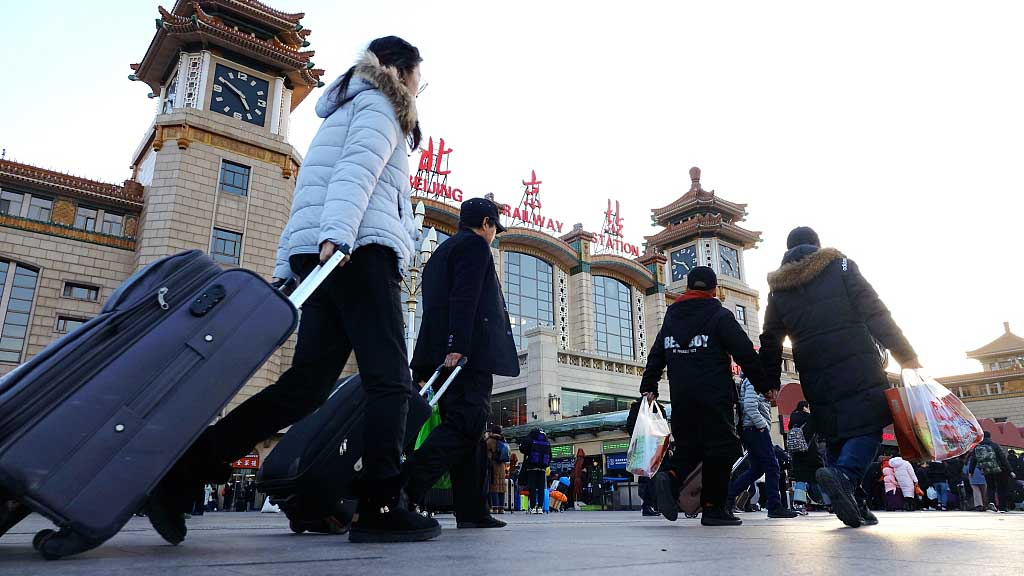
Culture China
13:11, 30-Jan-2019
Renting cars for holiday travel becomes a trend in China
By Li Jianhua
01:45

The world's largest travel rush is on. The days ahead of the Chinese Spring Festival see more passenger trips than any other holiday travel seasons worldwide. And in recent years, people have increasingly been renting cars to drive home.
Chinese authorities expect nearly three billion passenger trips during the 40-day travel peak that began on January 21.
The number of trips via highway is expected to hit 1.2 billion, which represents a roughly 10-percent increase over last year.
Business insiders say a shortage of train tickets is behind the rise in car rentals during the Chinese lunar New Year. Tickets can be sold out the instant they are put on sale.

The number of automobiles on the streets in Beijing has decreased as Spring Festival approaches. /VCG Photo
The number of automobiles on the streets in Beijing has decreased as Spring Festival approaches. /VCG Photo
It's estimated that the demand for car rentals will increase by 40 percent this year, according to China Auto Rental, one of the biggest car renting companies in China. This is despite what could be a fourfold price rise during this hectic period.
Last year, nearly 70 percent of all those who rented cars headed to their hometowns.
Dafang24.com, a car rental platform, said that over 60 percent of its users booked cars at least 10 days in advance of the Chinese New Year, while about 30 percent did so one month ahead.
China, the world's largest auto market
China surpassed the United States to become the world's largest auto market in 2009, with a record of 13.9 million cars sold in the country, while 10.43 million cars and light trucks were traded in the U.S., according to the China Association of Automobile Manufacturers (CAAM).
In the meantime, the Chinese government has vowed to have five million battery-electric and plug-in hybrid electric cars on the roads by 2020.
Research in 2019 conducted by the Shanghai Institute of Finance and Law (SIFL) – a non-profit research organization – indicates that Chinese people's consumption structure is transforming from subsistence to quality-oriented consumption, while renting, one that is focused on the right of use rather than ownership, has moved on a fast lane of development.
“With the improvement in the consumption ability of Chinese people, their demand for higher quality products is growing," Fu Weigang, executive president of the SIFL, told People's Daily.
China's vast highway network – about 130,000 kilometers in length – saw an estimated 235 million cars in 2018, over 180 million of which are privately owned.
There are over 400 million drivers registered nationwide – more than the entire U.S. population. About one-third do not own a car, hence the big car rental market.

SITEMAP
Copyright © 2018 CGTN. Beijing ICP prepared NO.16065310-3
Copyright © 2018 CGTN. Beijing ICP prepared NO.16065310-3